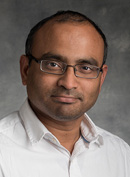 Sudhakaran Prabakaran, Ph.D. : DBT-India Cambridge Lecturer
Sudhakaran Prabakaran, Ph.D. : DBT-India Cambridge Lecturer
Email: sp339@cam.ac.uk
I completed my Ph.D. from the University of Cambridge and as a member of Fitzwilliam College in systems neuroscience. I did my postdoctoral work in the department of systems biology at Harvard Medical School. Thereafter, I have worn multiple hats - I have been a lecturer in Tufts University, following that I was an associate editor for Science Signaling, AAAS. I have also worked in Industry and I have cofounded a company. Currently, I am a DBT-India – Cambridge Lecturer in the department of genetics and a fellow of St. Edmund’s College at the University of Cambridge. I have another academic group in IISER-Pune, India.
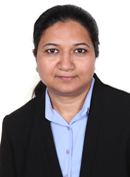 Ruchi Chauhan, Ph.D. : Visiting Scientist
Ruchi Chauhan, Ph.D. : Visiting Scientist
Email: rc393@cam.ac.uk
I completed my Ph.D. from Children’s Hospital Boston / Harvard Medical School (enrolled at Technical University of Munich, Germany) and worked as a postdoctoral fellow in pharmaceutical industry, Merck in Boston (USA). I am interested and involved in many aspects of science, such as engaging new generation of scientists through STEM programs, communication (serving in leadership roles in organizations committed to serve science and scientists), and business development of science (worked as a Fellow of Science & Technology commercialization, Harvard University). I am currently pursuing some of my interests in non-exonic translations in Prabakaran lab.
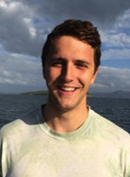 Felix Jackson : Part III Systems Biology Student
Felix Jackson : Part III Systems Biology Student
Email: foj20@cam.ac.uk
I am a master’s student in the department of Systems Biology at Cambridge. I am evaluating currently used variant calling algorithms, asking how well these algorithms perform on non-coding regions of DNA. Following the completion of the human genome project, around 98% of the human genome was initially discarded as non-coding, and applied research focused primarily on the 2% known to produce proteins. However, as the resolution of ‘omics’ approaches have improved, the large role these non-coding regions play is becoming increasingly apparent, especially in complex diseases such as cancer. We need to better understand the effects of genomic variations in these regions, and to do this we must first be able to accurately and reliably determine true variants from experimental noise in whole-genome sequence data.
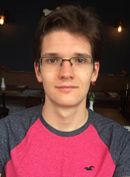 Adam Andreani : Part II Genetics Student
Adam Andreani : Part II Genetics Student
Email: aa829@cam.ac.uk
I am a preclinical medical student studying at Downing College, and currently reading Part II Genetics. I was born and raised in South Africa before moving to the United Arab Emirates, where I completed secondary school, and then Cambridge when I started my medical degree at the University in October of 2014. Following Part II Genetics, I intend to continue studying at the School of Clinical Medicine to complete my medical degree.
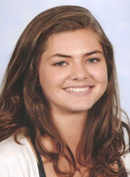 Annabelle Monnot: Part II Genetics student
Annabelle Monnot: Part II Genetics student
I am a Natural Sciences student studying at Robinson College, and currently reading Part II Genetics with Bioinformatics. I am American but was born and raised in Paris, France. I look forward to exploring the current understanding of non-coding functional variants involved in cancer in the Prabakaran lab.
Page created 18 Nov 2016; last amended 28 Nov 2016
